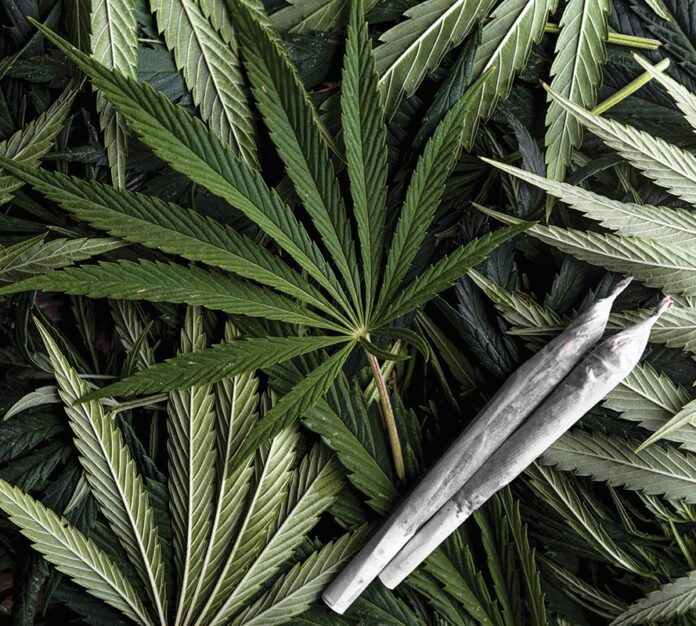Justice in the 4/20 industry held a cannabis equity listening session on April 2 at the Lakeside Community Center to discuss barriers that Black, Indigenous, and other people of color, people living in jails and prisons, system impacted, and poor people face in becoming entrepreneurs in the cannabis industry. The county of San Diego seeks to remove these barriers to make the cannabis industry equitable within the county. Womxn’s Work Consulting, LLC, was hired to survey and hold listening sessions to create a report that identifies these barriers in communities negatively impacted by the War on Drugs when attempting to enter the cannabis industry.
Justice in the 4/20 Industry Senior Researcher Jesse Mills said the overall project is to gather information from across the county about including different attitudes around cannabis.
“The county wants guidance in setting its policy related to legal adult cannabis broadly and set it to a social equity program,” he said. “The county has approved this report to guide the setting of this policy. There are many aspects as to what the county is wanting to do beyond this assessment, specifically related to policy around this industry. Part of it is to ensure that people that have been most impacted by the War on Drugs have an opportunity to be gainfully related to this industry. They might want to be entrepreneurs.”
Mills said barriers may be partially because applicants may have a criminal record, might not have enough savings, and not have as many networks or connections like banks and investors.
“Wherever there is a lack to access that supports being a successful entrepreneur, a socially equity program is going to try and ensure that those doors do not remain closed to those who have been most impacted,” he said. “We know that this is important. We know there are many different attitudes about this around the county, but it is a significant moment because this is a big policy change. People being informed and able to contribute to the decisions in policy is extremely important. The current permitting process is just not accessible to any except the most well-capitalized organizations.”
During the in-person and virtual meeting, participants were able to choose whether to be seen on camera or remain anonymous by not disclosing their name. In addition to the meetings, Justice is asking as many people as possible in the unincorporated areas to fill out a survey at bit.ly/justicein420.
People in session were asked to share personal stories of the impact of the War on Drugs, what inequities those led to, and how the county and social equity entrepreneur’s program can address these issues.
One person said being at the community center, they remembered when this was not a comfortable place to play, walk, or just hang out as a person of color.
“Sometimes, people still look at a neighborhood that has lower socioeconomic black and brown folks, and they will say this neighborhood is not a good neighborhood and may call it a ghetto. There is much that has happened historically to ensure that our communities are closed off from opportunities, investments, access to healthcare, and a good education.”
One woman spoke and said when she thinks about the War on Drugs, she thinks about how it not only impacted her, but also others in the county. She said she thinks about it in three avenues. Capitalism, real estate, and in terms of the black family.
“When I think about it in terms of capitalism. the War on Drugs was really started by the government,” she said. “Realizing that there was a big drug trade in the United States that they weren’t getting a cut of and so the government said, Well, hey, all these drug dealers are making a lot of money and getting rich. So, the government contracted many federal prison systems to make peoples sentences longer to make more money off the people who were victims of the War on Drugs, so that brings in the black family. And that is where I come in because I am a black woman and I think about when I saw my father being dragged from home. I think about being criminalized when other countries have shown that when you legalize street drugs people become uninterested in using one standard of legalization, so for me, it is about continuing to disrupt the black family.”
Another person spoke about carceral state funding, and how in being a person of color, how this affected their life.
“When we talk about the War on Drugs, I have never used hard drugs, but just with cannabis I have been followed, profiled, put in handcuffs, had my marijuana confiscated, and marijuana is what I use for mental health. So, things like that, just everyday slight to your freedom, we think about America.”
Several people spoke about personal experiences of family members being incarcerated for minor drug violations, such as serving 10 years for possessing one ounce of marijuana, a son who lost over 10 years of life with his father for being incarcerated with small amounts of drugs on him, and how situations like this create a toxic childhood, impacting their social upbringing, mental health, addiction, a distrust in law enforcement, and more.
One person pointed out that the War on Drugs was issued by President Richard Nixon in 1971 as a global campaign with the aim of reducing illegal drug trade in the U.S., and that it was important to understand the realities of the reasoning behind it. He reminded the group that Nixon’s former domestic policy chief John Ehrlichman confessed that the Nixon campaign had two enemies, the anti-war left and black people.
In 2016, author Dan Baum wrote an article for Harpers Magazine using a 22 year old interview he had with Ehrlichman while writing a book about the politics of drug prohibition.
Baum said that Ehrlichman said, “The Nixon campaign in 1968, and the Nixon White House after that, had two enemies: the antiwar left and black people. You understand what I’m saying? We knew we couldn’t make it illegal to be either against the war or black, but by getting the public to associate the hippies with marijuana and blacks with heroin, and then criminalizing both heavily, we could disrupt those communities. We could arrest their leaders, raid their homes, break up their meetings, and vilify them night after night on the evening news. Did we know we were lying about the drugs? Of course, we did.”
Mills said that they have gained much information during these listening sessions and are preparing a report for the County. He said the preliminary report will come out around June, then given to the County to use in its assessment of social equity policies in its cannabis industry procedures and policies.
To keep updated with information from Justice in the 4/20 Industry, follow it on Facebook at www.facebook.com/justicein420.














